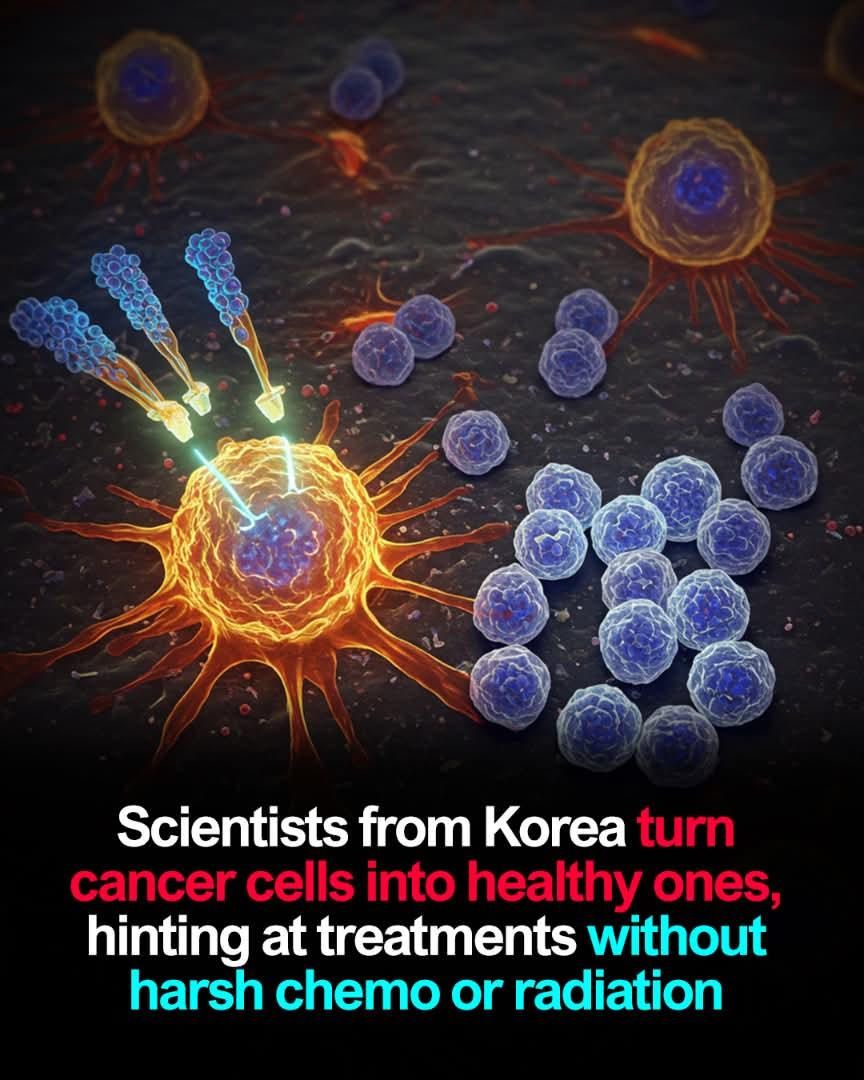In a medical breakthrough, scientists in South Korea have figured out how to actually reprogram cancer cells back into healthy, normal tissue—without relying on chemotherapy, radiation, or invasive surgeries. This new approach could completely change how we treat cancer, shifting the goal from destroying tumors to gently persuading them to act like healthy cells again. Using an advanced AI tool they developed called BENEIN, researchers at KAIST mapped out the complex gene networks inside cancer cells to identify the “master switches” that make them behave so dangerously. They zeroed in on three key genes—MYB, HDAC2, and FOXA2. By simultaneously silencing these genes in colorectal cancer cells, they didn’t just slow the cancer down; they triggered a transformation. The cancer cells started showing markers of healthy intestinal cells, effectively switching sides.
When they tested this approach in mice, tumors from these reprogrammed cells were 70% smaller and looked a lot more like normal tissue under the microscope. This method not only promises fewer side effects—like the nausea, exhaustion, and organ damage that come with chemo and radiation—but could also slash healthcare costs and give patients a gentler option. The idea is a philosophical shift too, treating cancer less like a vicious enemy to destroy and more like confused cells that can be guided back to health. While challenges remain, such as finding safe delivery methods and proving long-term stability, this groundbreaking research hints at a future where cancer treatment could mean renewal instead of ruin.
When they tested this approach in mice, tumors from these reprogrammed cells were 70% smaller and looked a lot more like normal tissue under the microscope. This method not only promises fewer side effects—like the nausea, exhaustion, and organ damage that come with chemo and radiation—but could also slash healthcare costs and give patients a gentler option. The idea is a philosophical shift too, treating cancer less like a vicious enemy to destroy and more like confused cells that can be guided back to health. While challenges remain, such as finding safe delivery methods and proving long-term stability, this groundbreaking research hints at a future where cancer treatment could mean renewal instead of ruin.
In a medical breakthrough, scientists in South Korea have figured out how to actually reprogram cancer cells back into healthy, normal tissue—without relying on chemotherapy, radiation, or invasive surgeries. This new approach could completely change how we treat cancer, shifting the goal from destroying tumors to gently persuading them to act like healthy cells again. Using an advanced AI tool they developed called BENEIN, researchers at KAIST mapped out the complex gene networks inside cancer cells to identify the “master switches” that make them behave so dangerously. They zeroed in on three key genes—MYB, HDAC2, and FOXA2. By simultaneously silencing these genes in colorectal cancer cells, they didn’t just slow the cancer down; they triggered a transformation. The cancer cells started showing markers of healthy intestinal cells, effectively switching sides.
When they tested this approach in mice, tumors from these reprogrammed cells were 70% smaller and looked a lot more like normal tissue under the microscope. This method not only promises fewer side effects—like the nausea, exhaustion, and organ damage that come with chemo and radiation—but could also slash healthcare costs and give patients a gentler option. The idea is a philosophical shift too, treating cancer less like a vicious enemy to destroy and more like confused cells that can be guided back to health. While challenges remain, such as finding safe delivery methods and proving long-term stability, this groundbreaking research hints at a future where cancer treatment could mean renewal instead of ruin.
0 Comments
0 Shares
585 Views



